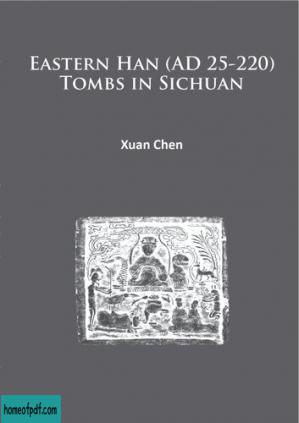Eastern Han (Ad 25-220) Tombs in Sichuan
该资源由用户: 九阴旭露 上传 举报不良内容

尊敬的读者:
欢迎您访问我们的网站。本站的初衷是为大家提供一个共享学习资料、交换知识的平台。每位用户都可以将文件上传至网盘并分享。
然而,随着用户上传的资料增多,我们发现部分不宜或版权问题的书籍被分享到了本站。
为此,我们已经关闭了分享入口,并进行了多次书籍审查,但仍有部分内容未能彻底审查到位。
在此,我们恳请广大读者与我们共同监督,如发现任何不宜内容,请 点击此处 进行举报,我们会第一时间处理并下架相关内容。
希望我们能共建一个文明社区!感谢您的理解与支持!
猜你喜欢

《好好说话第一步:学会倾听》[美]麦克·P.尼可斯中文版
View more
《好好说话第一步:学会倾听》[美]麦克·P.尼可斯中文版

《照着做,你就能掌控情绪》龙小云扫描版
View more
《照着做,你就能掌控情绪》龙小云扫描版

《思维导图攻略:快速上手与落地实践》王健文
View more
《思维导图攻略:快速上手与落地实践》王健文

《工作是最好的修行》樊登修订版
View more
《工作是最好的修行》樊登修订版

《怪医杜利特系列(套装共10册)》休•洛夫廷 (Hugh Lofting)
View more
《怪医杜利特系列(套装共10册)》休•洛夫廷 (Hugh Lofting)

《大萧条前夜的繁荣与疯狂》比尔·布莱森
View more
《大萧条前夜的繁荣与疯狂》比尔·布莱森

《安葬时刻:神探林肯原著小说 》杰夫里迪弗经典版
View more
《安葬时刻:神探林肯原著小说 》杰夫里迪弗经典版

《召唤:沃伦夫妇的惊凶职业实录》杰拉德·布利特尔
View more
《召唤:沃伦夫妇的惊凶职业实录》杰拉德·布利特尔

《非人类》绫辻行人文字版
View more
《非人类》绫辻行人文字版

《制胜谈判:36步骤达成合作双赢》游梓翔文字版
View more
《制胜谈判:36步骤达成合作双赢》游梓翔文字版

Node.js for Embedded Systems - Patrick Mulder and Kelsey Breseman
View more
Node.js for Embedded Systems - Patrick Mulder and Kelsey Breseman

《有限责任家庭》李雪文字版
View more
《有限责任家庭》李雪文字版


